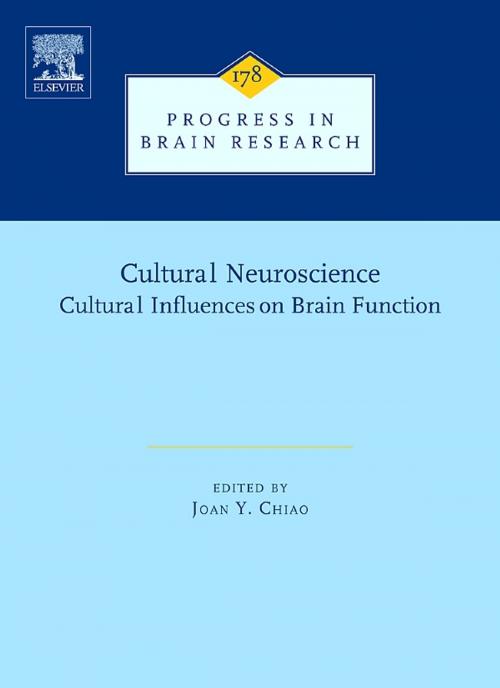Cultural Neuroscience: Cultural Influences on Brain Function
Nonfiction, Health & Well Being, Medical, Specialties, Internal Medicine, Neuroscience, Science & Nature, Science, Biological Sciences, Psychology| Author: | ISBN: | 9780080952215 | |
| Publisher: | Elsevier Science | Publication: | November 25, 2009 |
| Imprint: | Elsevier | Language: | English |
| Author: | |
| ISBN: | 9780080952215 |
| Publisher: | Elsevier Science |
| Publication: | November 25, 2009 |
| Imprint: | Elsevier |
| Language: | English |
This volume presents recent empirical advances using neuroscience techniques to investigate how culture influences neural processes underlying a wide range of human abilities, from perception and scene processing to memory and social cognition. It also highlights the theoretical and methodological issues with conducting cultural neuroscience research. Section I provides diverse theoretical perspectives on how culture and biology interact are represented. Sections II –VI is to demonstrate how cultural values, beliefs, practices and experience affect neural systems underlying a wide range of human behavior from perception and cognition to emotion, social cognition and decision-making. The final section presents arguments for integrating the study of culture and the human brain by providing an explicit articulation of how the study of culture can inform the study of the brain and vice versa.
This volume presents recent empirical advances using neuroscience techniques to investigate how culture influences neural processes underlying a wide range of human abilities, from perception and scene processing to memory and social cognition. It also highlights the theoretical and methodological issues with conducting cultural neuroscience research. Section I provides diverse theoretical perspectives on how culture and biology interact are represented. Sections II –VI is to demonstrate how cultural values, beliefs, practices and experience affect neural systems underlying a wide range of human behavior from perception and cognition to emotion, social cognition and decision-making. The final section presents arguments for integrating the study of culture and the human brain by providing an explicit articulation of how the study of culture can inform the study of the brain and vice versa.















